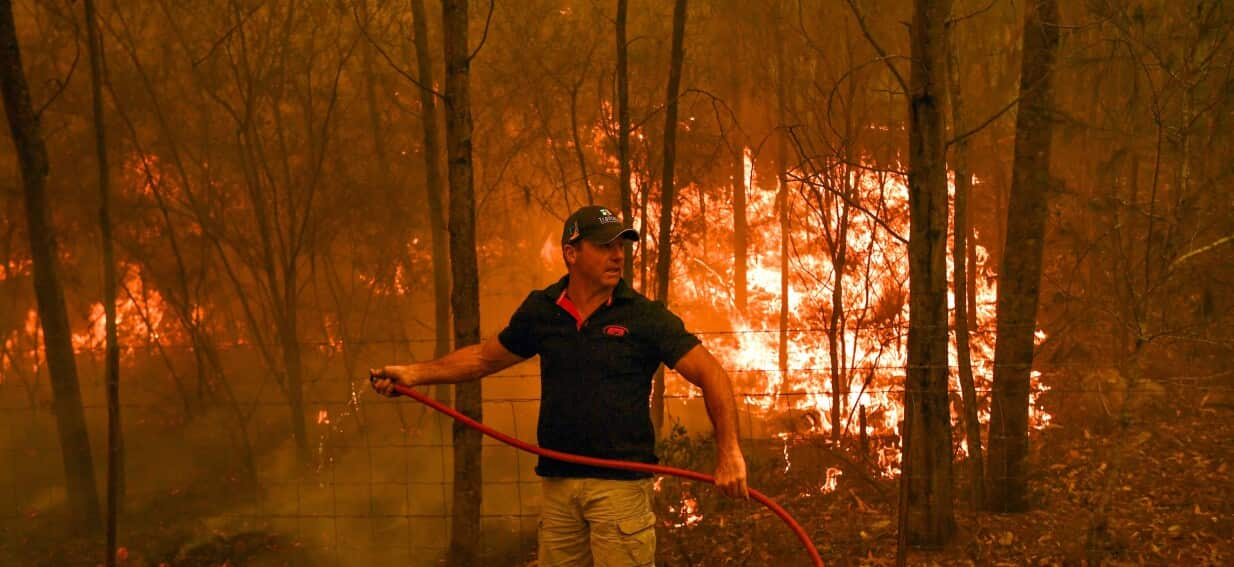
(Image credit: Jim Watson/AFP via Getty Images)
SpaceX CEO Elon Musk said Saturday that his company won’t block access to Russian media sources on its Starlink internet system despite requests from some governments.
“Starlink has been told by some governments (not Ukraine) to block Russian news sources,” Musk wrote on Twitter Saturday (March 5). “We will not do so unless at gunpoint.”
The request to Starlink comes as Russian military forces continue to invade Ukraine and many nations, including the United States, levy harsh economic sanctions on Russia in protest. Some tech companies like Google and Microsoft have worked to block Russian media outlets like the state-run RT network and Sputnik, according to Newsweek, but Musk’s statement implied Starlink would not block individual Russian-based news agencies.
“Sorry to be a free speech absolutist,” he wrote in his statement.
Related: How will Ukraine keep SpaceX’s Starlink internet online?
Photos: Russia’s invasion of Ukraine as seen in satellite images
Starlink has been told by some governments (not Ukraine) to block Russian news sources. We will not do so unless at gunpoint.Sorry to be a free speech absolutist.March 5, 2022
See more
Aside from excluding Ukraine, Musk did not state which countries had approached SpaceX’s Starlink service to ask for Russian media sources to be blocked.
SpaceX’s Starlink internet is active in Ukraine and the company sent antennas and terminals to the country this week to help restore internet and communications after widespread outages caused by Russia’s invasion on Feb. 24. Those terminals arrived on Monday (Feb. 28).
SpaceX’s Starlink system is a satellite megaconstellation designed to provide high-speed, low-latency broadband internet access to regions all over the world, with a focus on remote or underserved areas. The company has launched over 2,000 satellites since 2019 to build up the Starlink network.
Since Russia’s invasion of Ukraine last week, Musk has issued statements of support for the Ukrainian people.
“Hold Strong Ukraine,” Musk wrote on Friday (March 3).
Also on Friday, Musk said SpaceX was shifting its focus to cyber security after some Starlink terminals near conflict areas in Ukraine had their signals jammed for hours at a time.
He has also warned Starlink users in Ukraine to take safety measures to ensure their use of the satellite internet system does not make them a target to Russian forces.
“Important warning: Starlink is the only non-Russian communications system still working in some parts of Ukraine, so probability of being targeted is high. Please use with caution,” Musk wrote on Twitter Thursday (March 3). “Please use with caution.”
Correction: An earlier version on this story included a typo that changed the meaning of Elon Musk’s statement on free speech. He wrote that he is a free speech absolutist. This story has been updated to correct the error.
Email Tariq Malik at tmalik@space.com or follow him @tariqjmalik. Follow us @Spacedotcom, Facebook and Instagram.
Join our Space Forums to keep talking space on the latest missions, night sky and more! And if you have a news tip, correction or comment, let us know at: community@space.com.

Tariq is the Editor-in-Chief of Space.com and joined the team in 2001, first as an intern and staff writer, and later as an editor. He covers human spaceflight, exploration and space science, as well as skywatching and entertainment. He became Space.com’s Managing Editor in 2009 and Editor-in-Chief in 2019. Before joining Space.com, Tariq was a staff reporter for The Los Angeles Times covering education and city beats in La Habra, Fullerton and Huntington Beach. He is also an Eagle Scout (yes, he has the Space Exploration merit badge) and went to Space Camp four times as a kid and a fifth time as an adult. He has journalism degrees from the University of Southern California and New York University. To see his latest project, you can follow Tariq on Twitter.
Note: This article have been indexed to our site. We do not claim legitimacy, ownership or copyright of any of the content above. To see the article at original source Click Here











